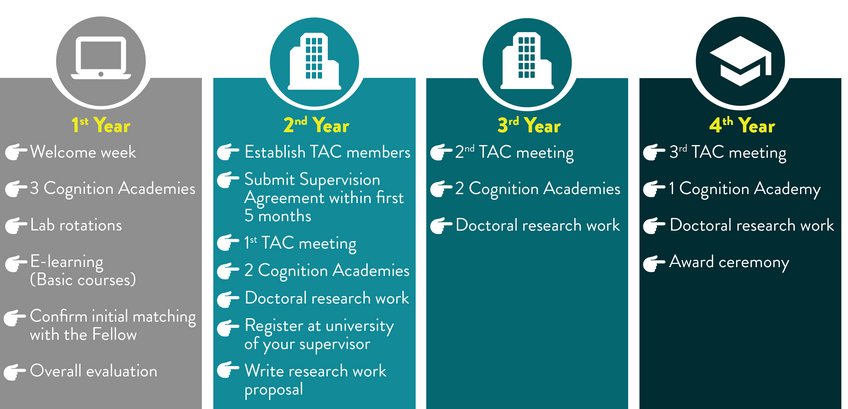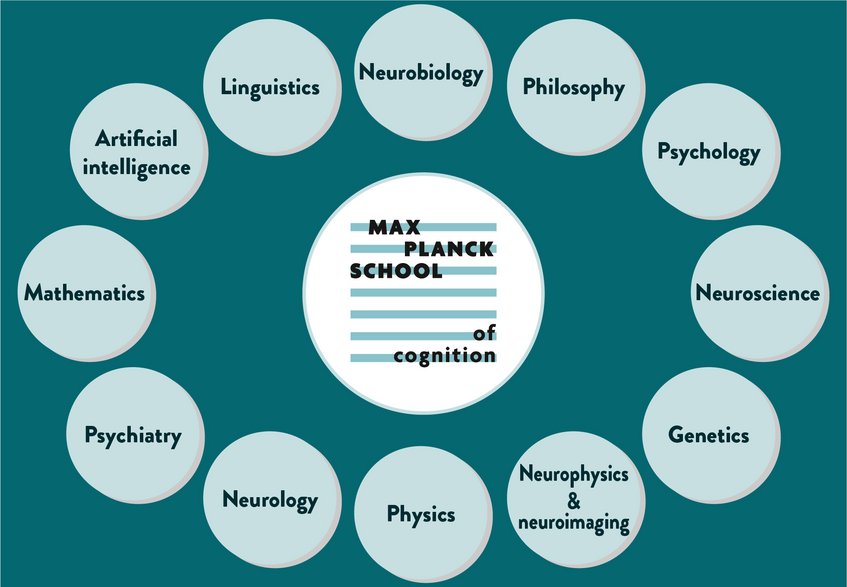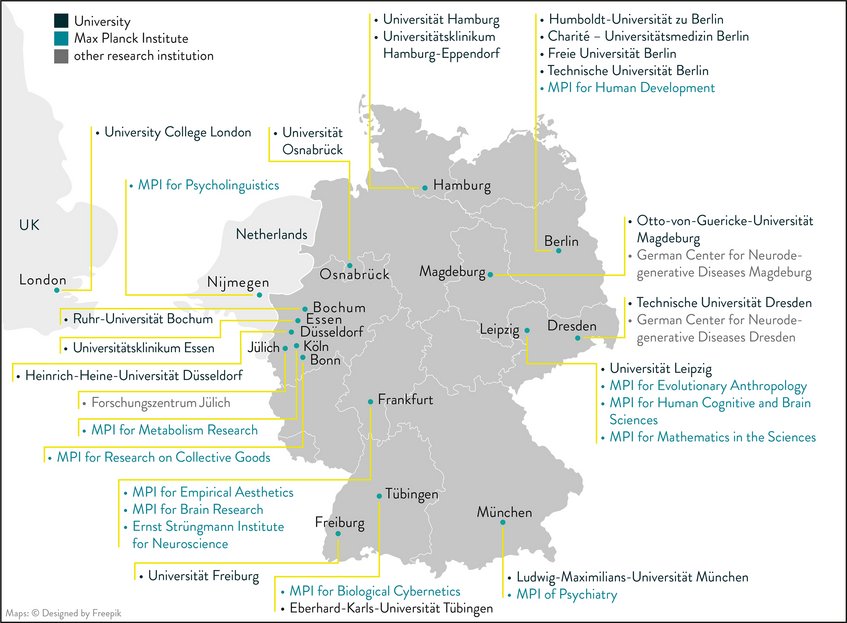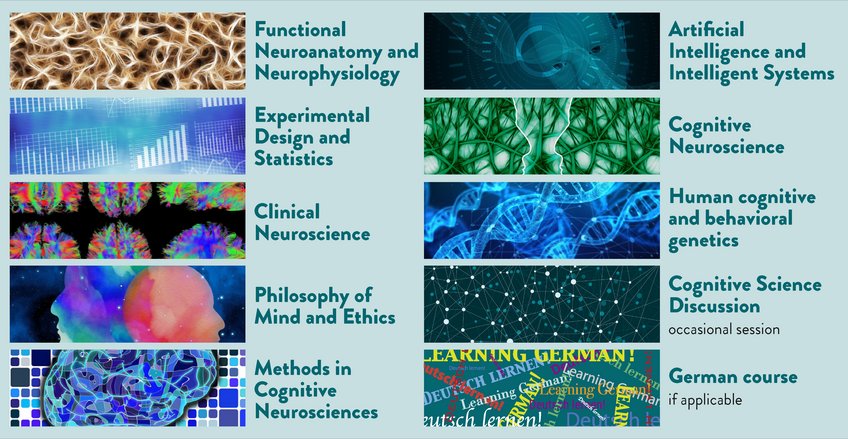
Program
The Max Planck School of Cognition offers an international four-year doctoral program starting on September 1st each year with a one-year orientation phase followed by three years of research for the doctorate (Figure 1). Students can enter the program with a bachelor’s (fast-track) or a master’s degree.
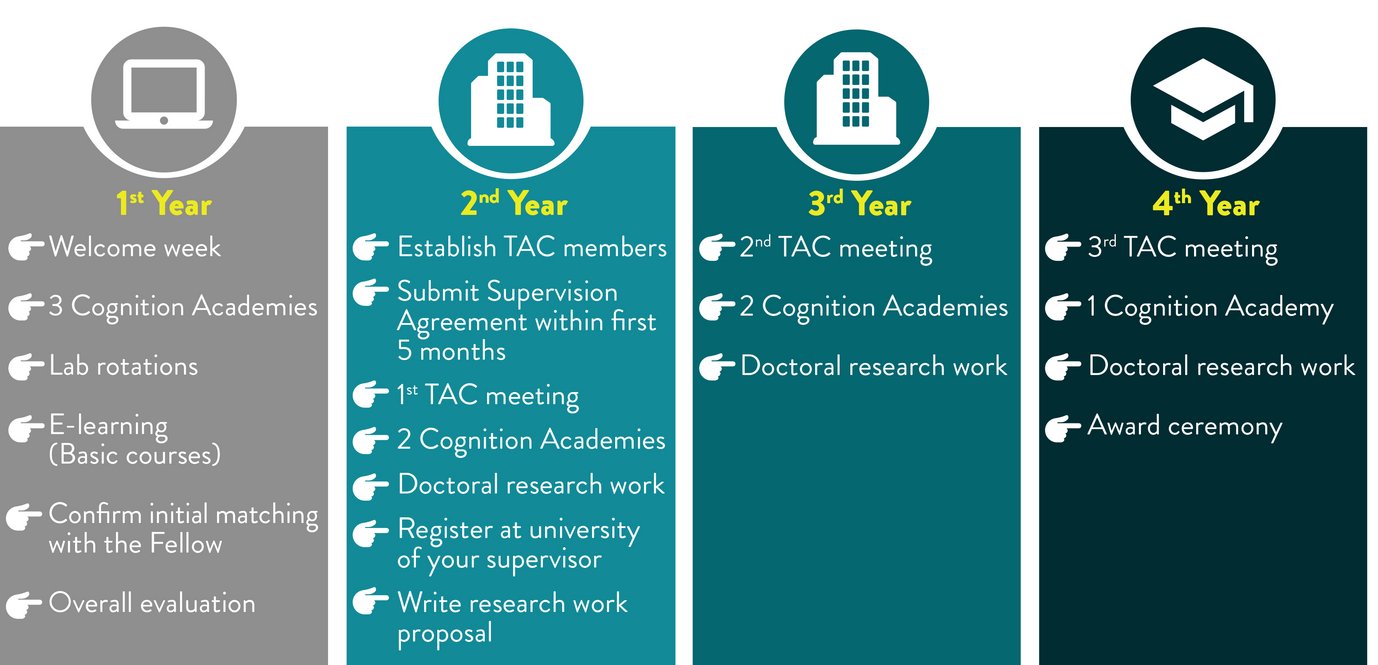
Application
Applicants can enter our program from a variety of different scientific research fields (Figure 2). A bachelor's or master's degree is required, whereas bachelor's candidates need to complete a fast-track master's degree in the first year. Interested candidates can apply for a place in our School in the fall (see application).
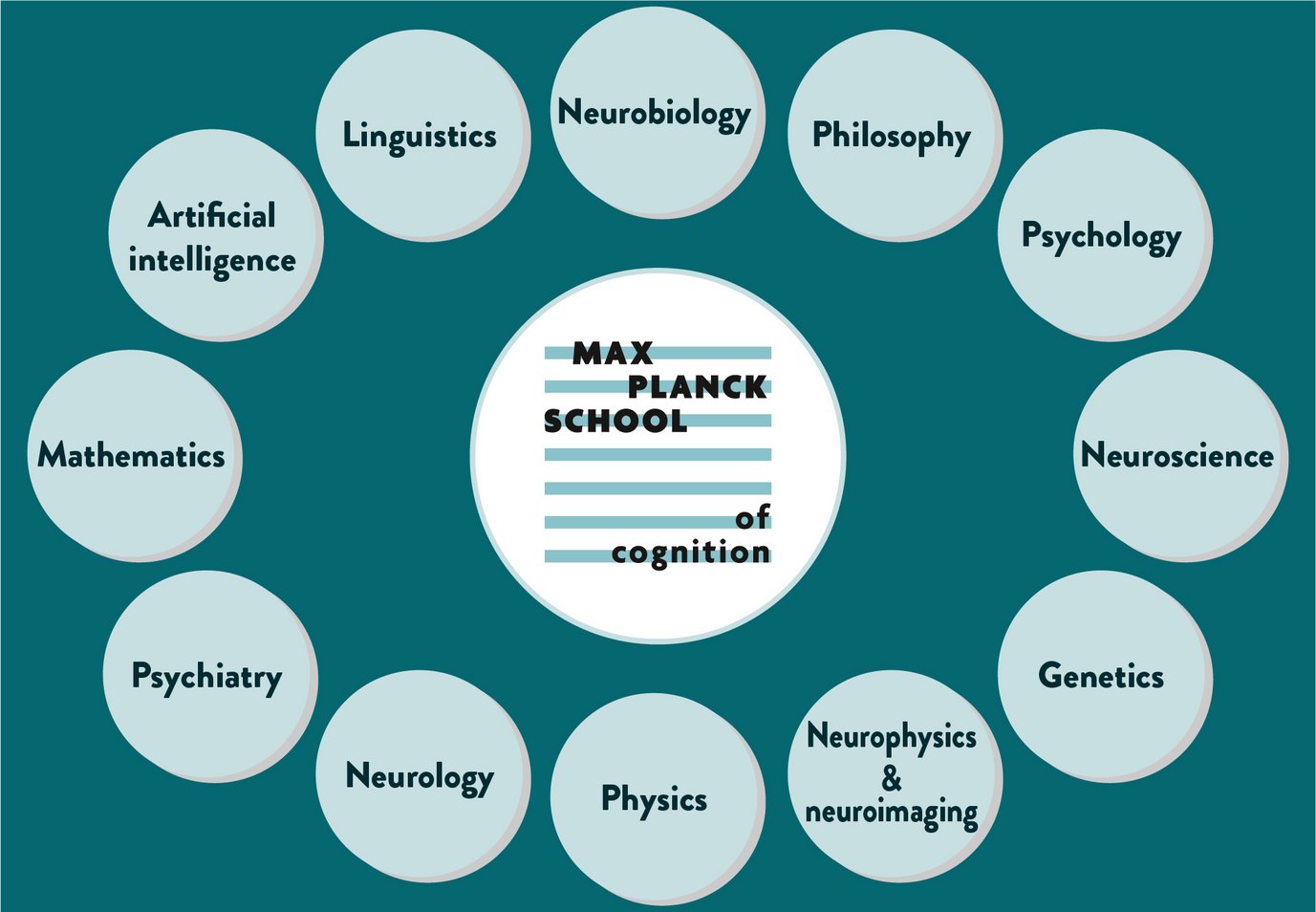
First Year
During the first year (the so-called orientation phase), emphasis is put on teaching and prolonged laboratory rotations usually in three different labs of fellows of the Max Planck School of Cognition. An important goal of the orientation period is that doctoral candidates acquire interdisciplinary or multidisciplinary perspectives on a selected common research theme (e.g., by combining artificial intelligence and cognitive neuroscience or psychology and basic anatomy).
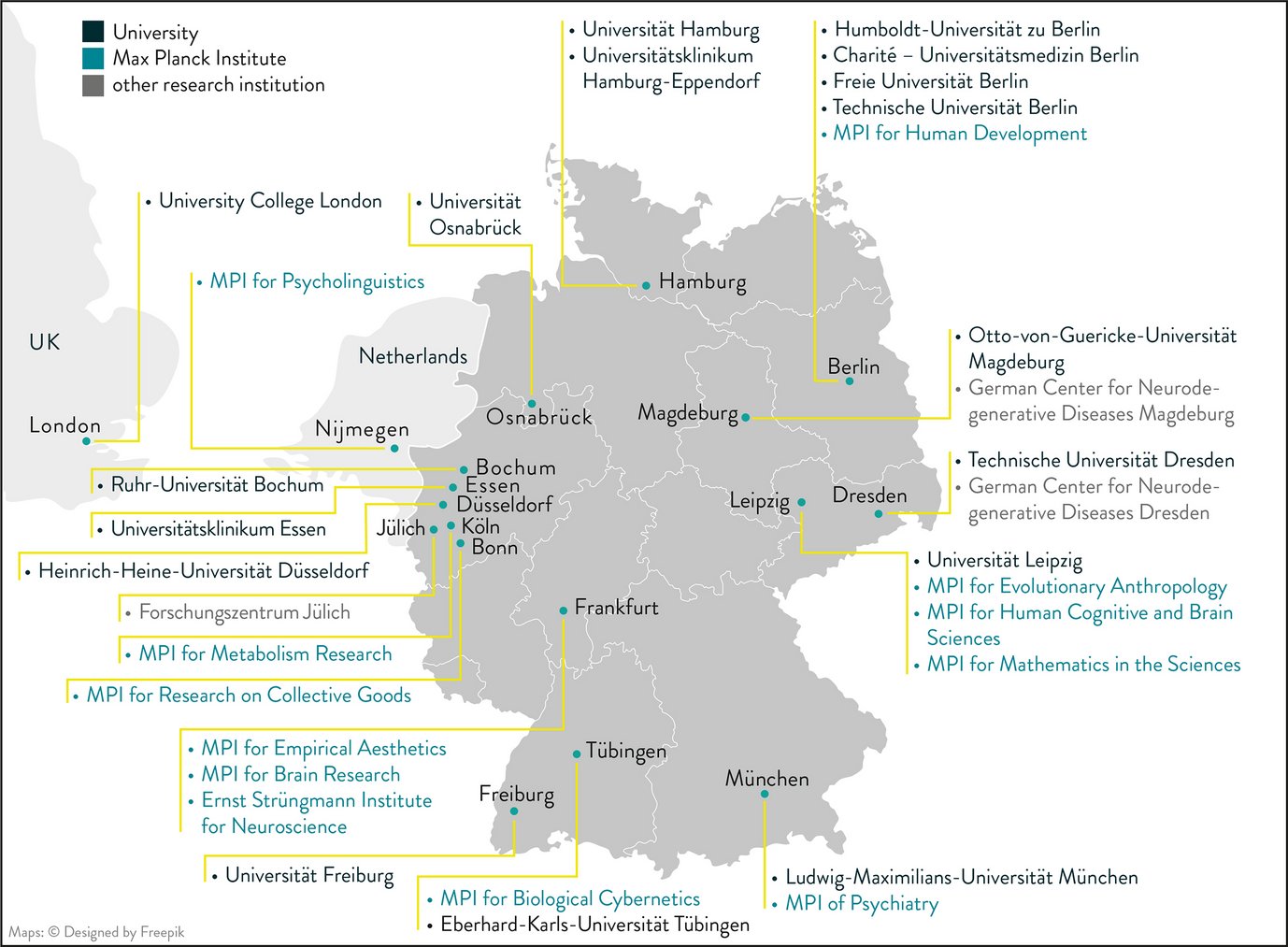
- Laboratory Rotations
Lab rotations allow first-year doctoral candidates to explore several different research groups (Figure 3) associated with the School's program. The goal of this period is to support of further definition of individual research interests and in choosing a fitting laboratory where the doctoral research work in the following 3 years is conducted.
- Lectures
Doctoral candidates are expected to attend basic scientific units presented in two categories:
1. E-learning courses during which the essentials in a specific area are covered (Figure 4)
2. Cognition academies (classroom weeks) in which doctoral candidates meet in person: a) a welcome week at the beginning of the first academic year to introduce the program of the Max Planck School of Cognition; b) three academies each year and between two to three teaching weeks long, on specific research topics
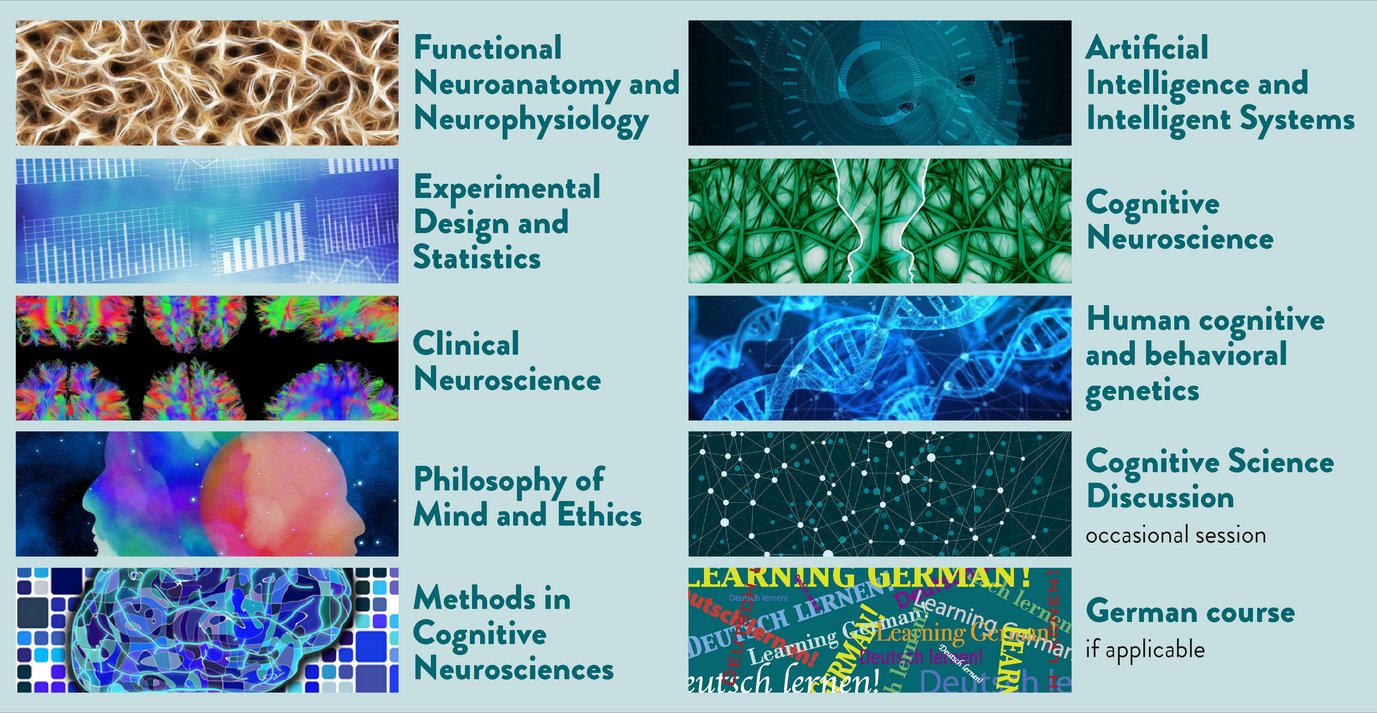
Although the academic program is conducted in English, being able to learn the German language will be advantageous to all doctoral candidates. Thus, the MPSCog offers a German course to all its international candidates to reduce language barriers and improve their daily life.
The first year is completed with an evaluation of the performance of each doctoral candidate before one advancing to the doctoral 'research-phase' (i.e., second to fourth years). Only after successful evaluation, doctoral students select a faculty member for their supervisory team (see Supervisor Selection).
Second and third year
- Doctoral research work
At the beginning of the second year, doctoral candidates work together with their selected supervisor to develop a feasible and relevant project proposal, which will then be presented to a thesis advisory committee. After approval of the research plan, doctoral candidates start their individual project. - Cognition Academies
Doctoral candidates usually attend two academies per year, each of which lasts two weeks. Each academy involves one week of courses on advanced topics and one week of doctoral candidate, faculty, and guest speaker presentations on select research topics.
Fourth year
- Doctoral research work
Students are expected to finalize their dissertation by the end of the fourth year - Cognition Academies
Students attend one cognition ‘academy’ involving presentations by faculty, students, and guest speakers
on respective research topics - Degree
Doctoral degrees will be awarded by the university to which the supervisor of the respective candidate is affiliated
© Header image: Nikolaus Brade
